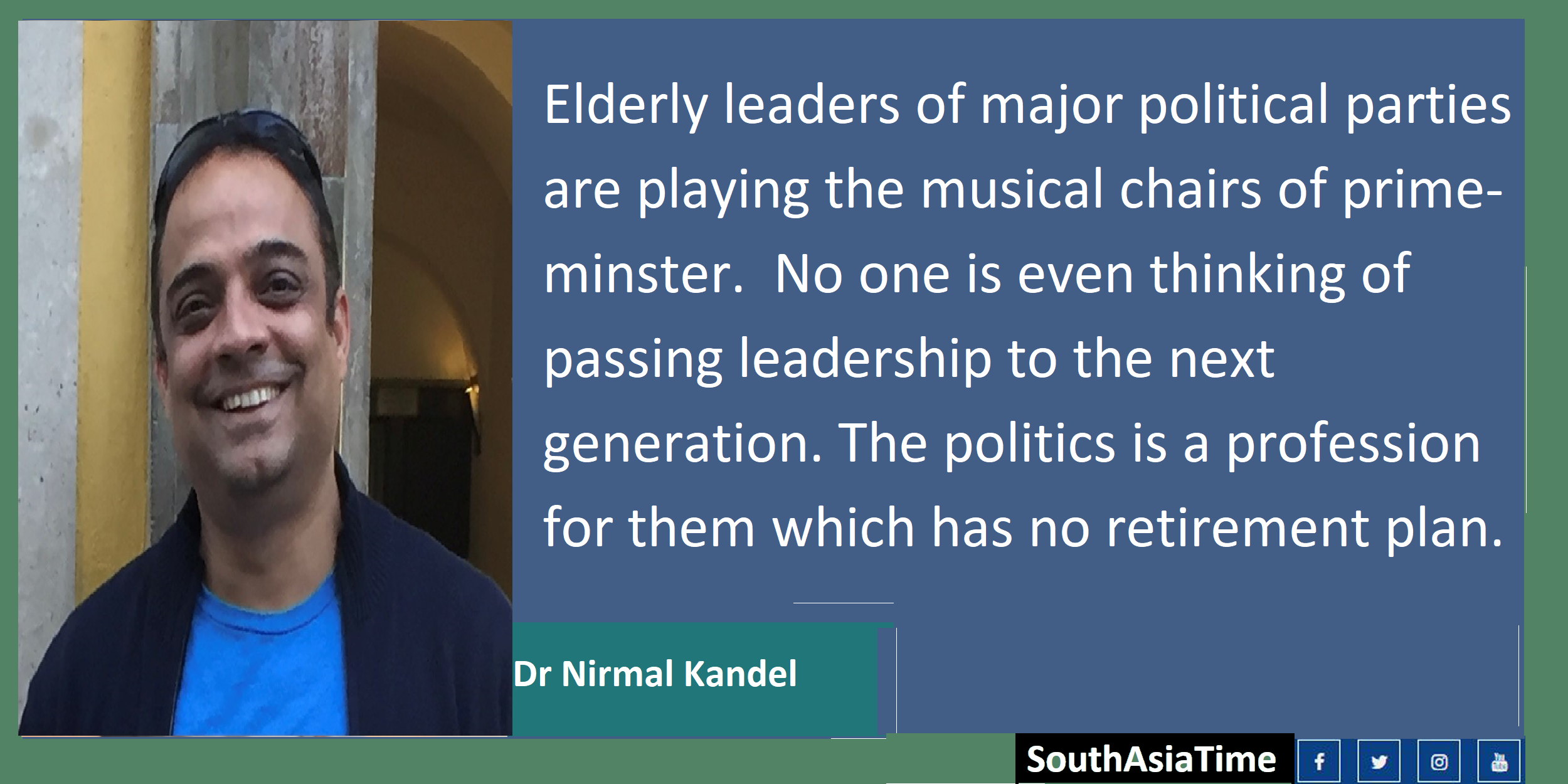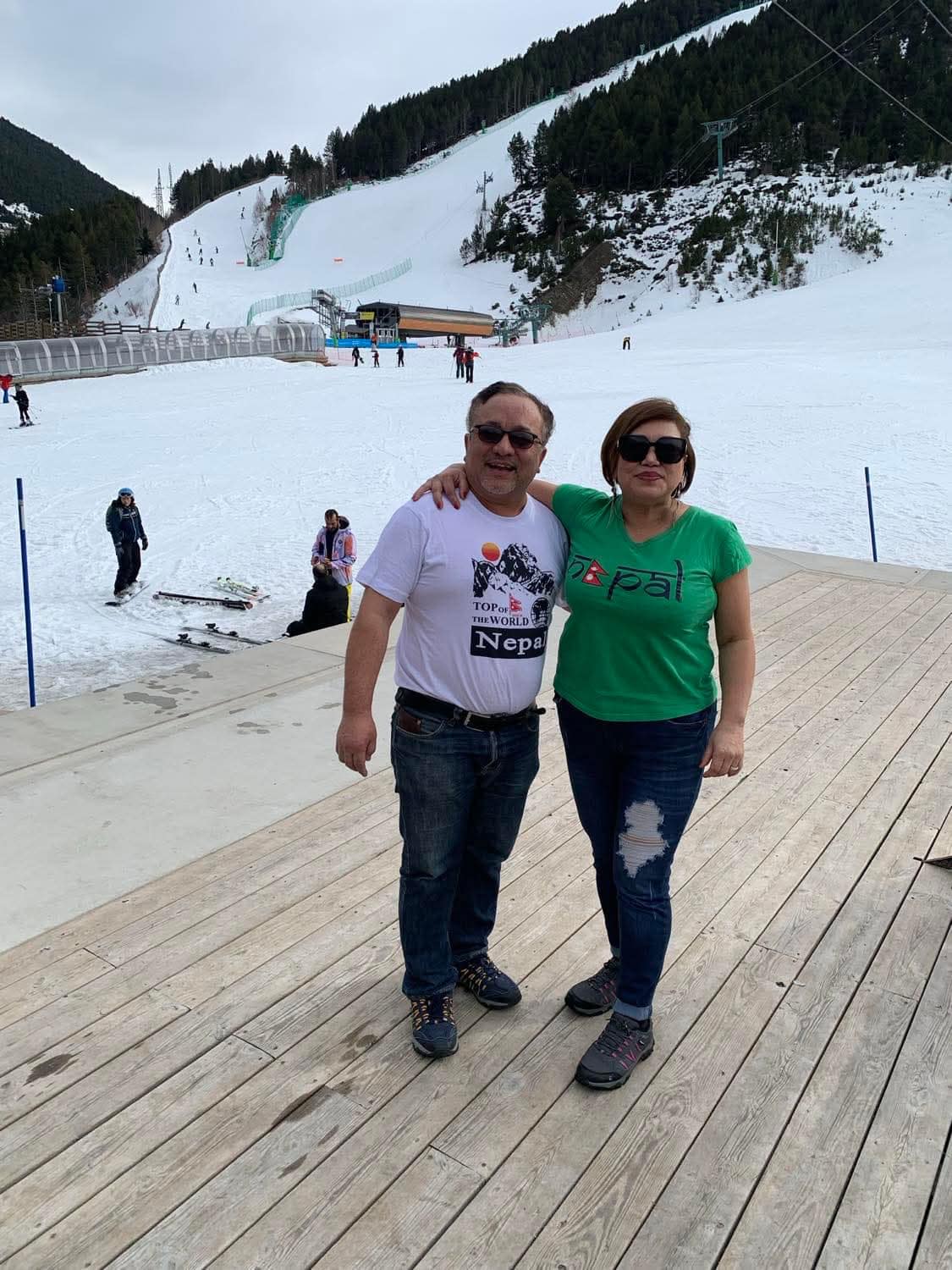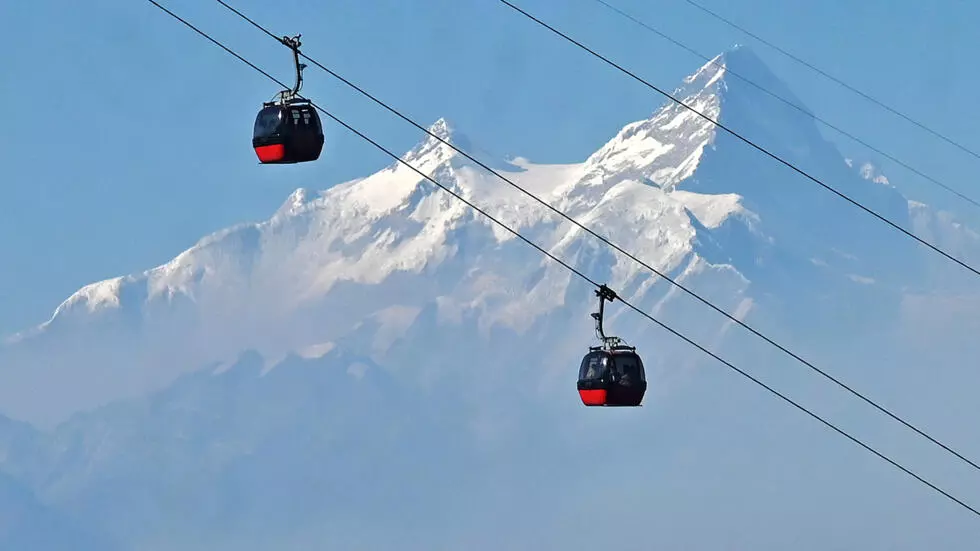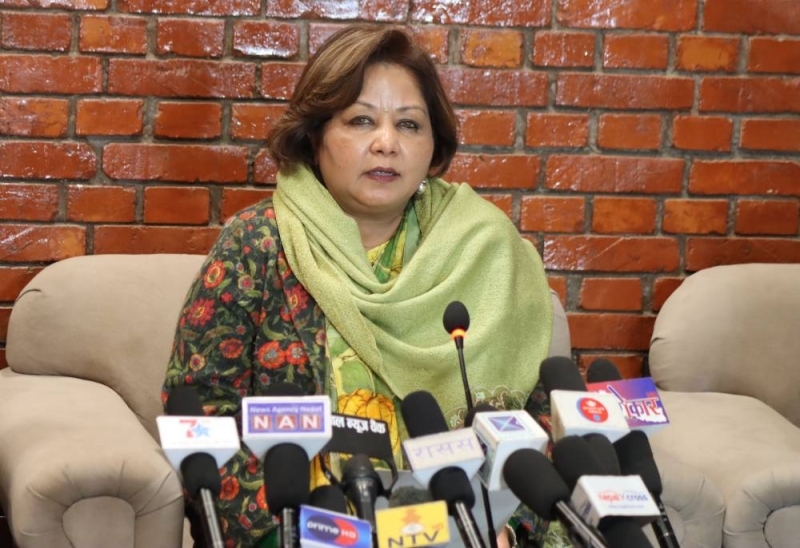Why cannot the next generation leaders lead?

Dr. Nirmal Kandel
Sebastian Kurz, Sanna Marin, Nayib Bukele, Jacinda Ardern and Tamim bin Hamad Al Thani are the youngest leaders of less than 40 years old, who are steering their country. Roosevelt, Kennedy, Clinton, Obama, Putin, Cameroon, Blair, and many others were in their 40s when they became president or prime minister. Lee Kuan Yew was only 36, and Park Chung-hee was 46 when they became president of Singapore and Republic of Korea respectively. Both are respected as the father of their nations. One common trait of the leaders mentioned above is that they were young when they started their politics and became the head of state.
Despite the removal of the monarchy, handover of leadership still follows feudal practices. An onetime great leader handing over the leadership to his family lineage, and for others, there is even no mechanism to handover to the next generation. In my opinion, there are two major issues. First, there is no appetite of senior leaders to handover the leadership to the next generation. It is due to the mindset of senior leaders that they must become a prime minister at least once and many times. At present, elderly leaders (or senior leaders) of any major political parties are playing the musical chairs of prime-minster or chairman. No one is even thinking of passing leadership to the next generation, be it in the party politics or the government. The politics is a profession for them which has no retirement plan. Astonishingly, even the next generation leaders are neither asking nor fighting for it. Is it due to lack of confidence of these leaders? They are pleased to be a loyal apprentice to their group leader (a senior leader– Gut ko Neta) and waiting for their blessings for their alleviation. Either they do not understand their strengths, or they are so subdued by the senior leaders that they are trapped.
There are a few promising charismatic next-generation leaders in the major political parties. They demonstrated their leadership skill when they had opportunities. Be it reducing the load shedding, re-opening of closed industries, introducing health insurance bill, generating electricity powers and improving foreign relations of Nepal. Some of them are agile, versatile, proactive and innovative. I am confident that if they lead the country, then the development can be on track. However, there are many hurdles to happen things like this. These leaders do not dare to voice against their elderly leaders, nor they fight for a handover. There are two reasons. A first one, they are not united, and distrust and division among themselves are so high that senior leaders are capitalising for their benefits. A second one, senior leaders have subdued them so badly that they believe that without their blessings they do not have any chance.
Politics of Patronage
Nepalese are pleased to be used by their seniors with a high hope of getting blessings. However, the scenario is not that pessimistic as there are a few leaders still exist in the country, who have guts to speak against the leaders, political ideologies and any wrongdoings. Many of them are speaking regularly and putting their views and opinions in their parties’ discussion. Recent events and development are the perfect examples. However, they do not have enough forces that can stir the senior leaders. Even if they have a force, there is a distrust between group members. No one is sure that when senior leaders throw something on anyone’s lap and they will simply ditch the group or ideology. We may be able to witness such examples very soon. The senior leaders are taking full advantage of “divide and rule”, a popular colonial practice. It may be one of the reasons why political parties break and members switch groups quite often with a hope of getting a piece of cake.
I am not against the leadership of elderly senior leaders, but the concern is that they have not done anything significant to the country or the public. Some leaders have brought massive changes in the country by spearheading a violent campaign to remove the century-old monarchy and turn Nepal into a Federal Democratic Republic of Nepal. It has created an opportunity to mentor leaders at national, regional and local levels. A few years back, no one had imagined that any common man could become a prime-minister or head of local government without the blessing of the monarch. Now anyone can become a president or prime minister. As there are no signs of passing leadership to the next generation and nor there are any signs of demanding leadership from the seniors, it looks like we are still following the practices of the monarchy. The situation looks like as if major political parties do not have any choices to handover other than playing musical chair among senior leaders. Due to the parliamentary system, it is not easy for every common man to join politics, because the politics is a profession or investment for many politicians with a hope of becoming a minister or prime minister. Leaders often say that “I was in jail for ten years or I spent 20 years in student and national politics” and apparently, the current practices show that these qualifications are enough to lead any government portfolio of the country. The situation needs to change where a right person should be in the right place at the right time, the way exceptionally some were there in the past and performed very well.
Be a leader
All the next generation leaders who are in politics or those who want to join politics, there are specific characteristics that one must develop, practice and passed on. A first thing, stop yourself from being coached and look for being mentored. Mentoring focuses on the development of the leaders and includes attitudes, behaviour and perspective in addition to knowledge and skills. It also requires courage to say ‘NO’ to remnants of outdated perspective or ideology of the senior leaders. It cannot evolve on one day and requires a lot of learning and practising. Create a group, accept constructive criticisms, learn from others, innovate and improvise methods that can apply to a local context. Humility and a commitment to service are enduring characteristics of the leaders. Understand that people measure every leadership’s accomplishments. The public expects a brave leader, take a stand and make decisions that are good for the public even though it is hard for senior leaders to digest and accept.
All the next generation leaders should be responsive to public needs, communicate a clear mission and be honest to the public. The leader should engage all the stakeholders, even the opposition, run your ideas at least to three generations. Go to schools or colleges, go to offices and your contemporary communities, societies, oppositions and go to old homes or communities of retirees. Each generation brings its strengths on how they see the problem.
Communication is the key
Any promising next-generation leaders have the most prominent threats from their fraternity and senior leaders. Therefore, individual behaviours and characters should be practised and checked regularly. Be mindful of reading people’s non-verbal behaviours and intuitively sense the motivation of others. Communicating frequently and establishing rapport with others, expanding the network beyond your group and ideology, being transparent, honest, and sincere with the public and finally managing the image is key to success. Despite having these characteristics in some, many promising leaders disappointed the people with their lies, dishonesty, infidelity and relation with goons, business houses and corruption.
In a country like Nepal and elsewhere, emerging leaders will have to go through a roller coaster ride in the future. For both the senior leaders handing off and the smart, ambitious younger leaders stepping in to accept the hand-off, the above-mentioned essential points should be considered for maximum value and to build the nation.
A medical epidemiologist and anthropologist, Dr Kandel is also a member of Nepal Medical Association. These are strictly personal views of the author.
@kandelnirmal


















Facebook Comments